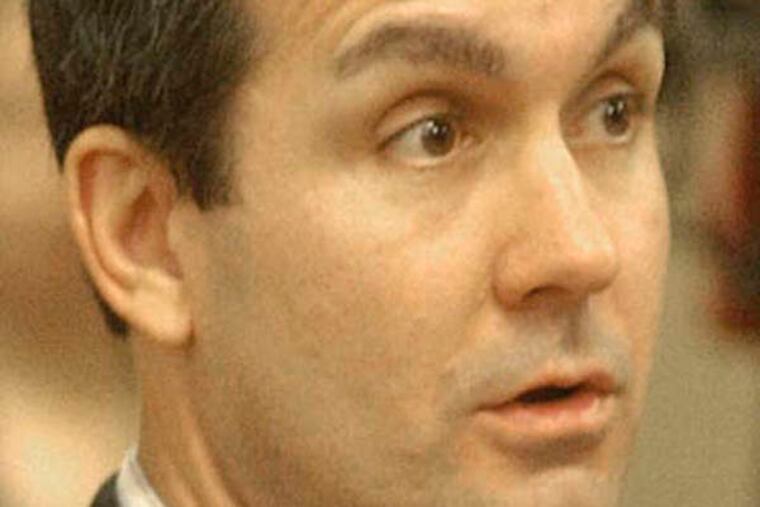DePasquale: City needs more money for pensions
Philadelphia will need to pay more into its "severely distressed" pension system, state Auditor General Eugene A. DePasquale warned Monday in a new audit of the city's retirement plans.

Philadelphia will need to pay more into its "severely distressed" pension system, state Auditor General Eugene A. DePasquale warned Monday in a new audit of the city's retirement plans.
"We are extremely concerned about the historical trend," DePasquale wrote in his 18-page report.
Philadelphia pays more in pensions than in paychecks. The city employs 27,000 police, firefighters, and non-uniformed employees, and supports more than 36,000 retirees. Fully qualified retirees can collect up to 80 percent of what they took home in their best-paid years, or 100 percent if they are police or firefighters, the audit said.
Veteran employees can retire as young as 40 (police and fire) or 52 (non-uniformed) and still receive reduced pensions.
In 2001, just after the city borrowed $1.29 billion to beef up its chronically underfunded pensions, Philadelphia had $77.50 set aside in investments for every $100 it expected to owe pensioners.
But by mid-2014, pension assets had fallen to $45.80 per $100. "The funding status of the city's pension fund has dramatically deteriorated," DePasquale noted.
Despite weak investment results, DePasquale credited Mayor Nutter's administration with raising annual pension contributions and upgrading antiquated accounting.
City Treasurer Nancy Winkler, attending a municipal finance conference at the Union League, on Monday noted that the city's outside actuaries project that pension payments from 2015 to 2020 will remain roughly in the $600 million a year range, or about one-sixth of the city's total budget.
But DePasquale said the city's projections use an annual investment returns target of 7.8 percent a year, which he said is unrealistically high and should be cut below 6 percent or the city will likely face much higher catch-up payments in the future.
As head of a municipal pension reform commission appointed by Gov. Wolf, DePasquale has recommended changes for Philadelphia and hundreds of other underfunded Pennsylvania plans. He says the plan should consider dropping some of its high-fee private investment managers and buying low-fee index funds that may yield similar returns at less cost, as Montgomery County did last year.
Pennsylvania assists hundreds of communities in funding their pensions each year. But under the state's funding formula, some better-off communities like East Goshen, Ambler, and Morrisville have their entire annual public pension contribution paid by the state, while in Philadelphia, the state's share is less than one-quarter of the $600 million yearly contribution.
If the city remains deeply underfunded, legislators are likely to demand the state pension agency take over managing the pension system - as it does with smaller plans that can't balance income and spending. "You can't ask for continued independence and still expect the state to pay," the auditor general concluded.
Asked what Democratic mayoral candidate Jim Kenney would do about pensions if elected, spokeswoman Lauren Hitt noted that DePasquale endorsed Kenney for mayor last week. She said Kenney had opposed continuing the costly DROP deferred-retirement pension program - which, Hitt said, nearly cost Kenney his former City Council seat.
This story has been clarified to note that the city's projected future pension payments were developed by an outside actuarial firm.
215-854-5194@PhillyJoeD